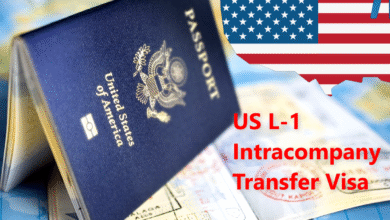What to Look for When Hiring an Estate Planning Lawyer in Connecticut
This guide will walk you through the key factors to consider when hiring an estate planning lawyer in Connecticut.

Estate planning is a critical aspect of securing your financial future and ensuring that your assets are distributed according to your wishes. If you reside in Connecticut, hiring the right estate planning lawyer can make all the difference. A qualified attorney will not only help you draft essential documents like wills and trusts but also navigate complex state laws. This guide will walk you through the key factors to consider when hiring an estate planning lawyer in Connecticut.
1. Expertise in Estate Planning Law
Not all lawyers specialize in estate planning. When looking for an attorney, ensure they have specific expertise in this field. Estate planning involves intricate laws regarding wills, trusts, probate, power of attorney, and healthcare directives. An attorney well-versed in these areas will help you create a legally sound plan tailored to your needs. Ask potential lawyers about their experience and whether they focus exclusively on estate planning or handle it as part of a broader practice.
2. Familiarity with Connecticut Estate Laws

Estate laws vary by state, so hiring an attorney with in-depth knowledge of Connecticut’s legal framework is crucial. Connecticut has specific laws regarding estate taxes, probate processes, and trust administration. A lawyer familiar with state-specific regulations can help you minimize estate taxes and avoid unnecessary legal complications.
For example, Connecticut is one of the few states that impose a state estate tax in addition to the federal estate tax. A knowledgeable lawyer will help you structure your estate in a way that reduces tax liabilities and ensures a smooth transition for your beneficiaries.
3. Reputation and Client Reviews
Before hiring an estate planning lawyer, research their reputation. Online reviews, testimonials, and referrals from family or friends can provide valuable insights into an attorney’s professionalism and effectiveness. Websites like Avvo, Martindale-Hubbell, and Google Reviews can help you assess a lawyer’s track record.
Additionally, check if the lawyer has any disciplinary actions filed against them with the Connecticut Bar Association. A clean record is an essential indicator of their credibility and trustworthiness.
4. Personalized Approach
Estate planning is not a one-size-fits-all process. A good estate planning lawyer should take the time to understand your unique financial situation, family dynamics, and long-term goals. Avoid attorneys who offer generic solutions or rush through the process. Instead, look for someone who provides customized estate plans tailored to your needs.
During your initial consultation, ask the attorney how they approach estate planning and whether they provide personalized strategies. This can help ensure that your plan addresses your specific concerns, such as protecting a special needs family member or ensuring business succession.
5. Transparent Fee Structure
Legal fees can vary significantly among estate planning lawyers. Some attorneys charge a flat fee for services like drafting a will or setting up a trust, while others bill by the hour. Before hiring an attorney, ask for a detailed breakdown of their fees and any potential additional costs.
A reputable estate planning lawyer will provide clear pricing and ensure you understand what you are paying for. Transparency in fees prevents surprises down the road and helps you budget accordingly.
6. Availability and Communication
Estate planning requires ongoing communication, especially if you need to update your documents due to life changes such as marriage, divorce, or the birth of a child. Choose a lawyer who is responsive and accessible when you have questions or concerns.
During your initial meetings, observe how quickly they respond to emails or phone calls. An attorney who takes days to reply may not be the best fit for long-term estate planning needs. Reliable communication ensures that your estate plan remains up-to-date and effective.
7. Comprehensive Services
Some estate planning lawyers offer a full range of services, including probate assistance, elder law planning, and tax planning. If your estate is complex, you may benefit from a lawyer who provides comprehensive services beyond drafting a will.
For example, if you own multiple properties or have a blended family, you may need advanced estate planning strategies such as irrevocable trusts or asset protection planning. A lawyer with a broad range of services can address all aspects of your estate.
8. Experience with Probe and Trust Administration
While a well-crafted estate plan can help your family avoid probate, some estates may still require probate court proceedings. Hiring an attorney with experience in probate law ensures that your loved ones receive proper legal guidance during this process.
Similarly, if you plan to establish a trust, choose a lawyer with experience in trust administration. This ensures that your trust is managed correctly and that beneficiaries receive their assets according to your wishes.
9. Professional Credentials and Memberships
A well-qualified estate planning lawyer should be a member of professional organizations such as the Connecticut Bar Association and the American Academy of Estate Planning Attorneys. Membership in these organizations indicates that the attorney stays updated on legal trends and best practices in estate planning.
Additionally, look for lawyers who have additional certifications, such as being a Certified Specialist in Estate Planning, Trust, and Probate Law. These credentials reflect a higher level of expertise and commitment to estate law.
10. Compatibility and Trust
Estate planning is a deeply personal process. You need a lawyer you can trust with sensitive information about your finances and family dynamics. During your initial consultation, assess whether you feel comfortable discussing your concerns with the attorney.
A good estate planning lawyer should listen attentively, answer your questions clearly, and make you feel at ease. Trust your instincts—if something feels off, consider looking for another lawyer who better aligns with your needs and values.
Final Thoughts
Hiring the right estate planning lawyer in Connecticut is a crucial step in protecting your legacy and ensuring that your wishes are honored. By considering factors such as expertise, reputation, communication, and transparency, you can find an attorney who meets your needs and provides peace of mind for you and your loved ones.
Start your search today by researching qualified estate planning lawyers in Connecticut and scheduling consultations to find the best fit. A well-prepared estate plan will give you confidence that your assets and loved ones are in good hands.











